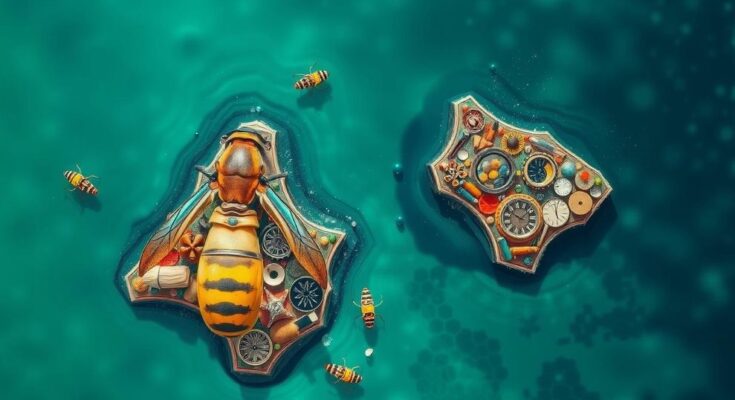Seychelles and Kenya are collaborating to create a national biological risk assessment tool to identify potential biological threats over the next five years. A workshop at the Savoy Resort and Spa involves 30 experts from various fields, focusing on biological risks related to human and animal health. Funded by the European Commission, the project seeks to bolster preparedness for biological incidents in Eastern and Central Africa, extending until 2026.
A collaborative effort is underway between Seychelles and Kenya to develop a national biological risk assessment tool, aimed at identifying significant areas that could benefit from biological risk assessments over the next five years. This initiative involves 30 experts from diverse fields such as health and agriculture, participating in a five-day workshop at the Savoy Resort and Spa in Beau Vallon, Seychelles. These experts are essential responders to biological incidents related to human, animal, and environmental health.
This initiative is part of the European Union’s Chemical, Biological, Radiological, and Nuclear (CBRN) Centres of Excellence Project 99. The project aims to enhance capacity and preparedness for biological incidents in Eastern and Central Africa, involving 11 member countries, including Burundi. Dr. Jimmy Melanie, a representative from Seychelles, noted the necessity of mapping biological risks, particularly in light of ongoing developments, which may pose chemical, radiological, or biological threats.
A focus on biological risks encompasses diseases in animals that can impact human health. Dr. Melanie indicated the importance of addressing animal-related illnesses, such as avian flu, alongside toxins from plants and pathogenic viruses or bacteria. He emphasized the need for Seychelles to recognize and prepare for such risks, ensuring policy frameworks are in place for effective responses to any biological incidents.
Prior to this workshop, participants were trained in Nairobi, Kenya, earlier in the year, where they were introduced to the national biological risk assessment tool. The project will extend until 2026, enabling experts to eventually assist authorities in compiling a comprehensive list of potential biological risks facing their countries.
Scott Spence, the Project 99 team leader, highlighted that the conclusion of the workshop will equip participants with the necessary skills to identify possible biological threats and risks in the near to medium term. The workshop will also involve developing contingency plans for worst-case outbreak scenarios, including assessing the likelihood and potential impacts of pandemics over the next five years. Joris Sprokholt, a key expert on the project, underscored the importance of insights gained during the workshop for various stakeholders, including NGOs and veterinary professionals. Furthermore, Sprokholt discussed embracing a ‘one health perspective,’ which integrates the health of humans, animals, plants, and the environment.
The development of a biological risk assessment tool is crucial in the context of increasing biological incidents and the interconnectedness of health across humans, animals, and the environment. Both Seychelles and Kenya face unique biological threats that can have significant repercussions on public health and agriculture. The collaboration under Project 99 aims to prepare these nations to effectively address these challenges through improved risk mapping, awareness, and response strategies, while benefitting from training and support from international partners such as the European Union and UNICRI.
The collaborative initiative between Seychelles and Kenya focused on biological risk assessment represents a vital step towards ensuring preparedness against potential biological incidents. Through rigorous training sessions and workshops, experts are being equipped to identify risks and develop effective strategies to mitigate these threats. As the project unfolds, the insights gained will enhance the capability of both nations to respond efficiently to biological challenges, ensuring that health and safety are prioritized in their respective communities.
Original Source: www.seychellesnewsagency.com




